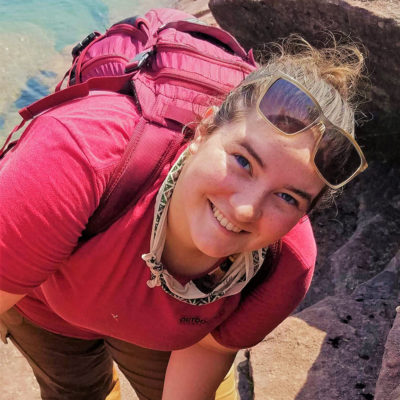 The first time I visited Wisconsin, it was to tour Northland College shortly after I graduated high school. After a few hours spent walking around campus in the cold, gray May rain, I decided to officially enroll. After a few hours spent driving the monotonous interstate back to Kansas, I felt intense buyer’s remorse, tempered only by constantly reminding myself that I was ready to leave home.
The first time I visited Wisconsin, it was to tour Northland College shortly after I graduated high school. After a few hours spent walking around campus in the cold, gray May rain, I decided to officially enroll. After a few hours spent driving the monotonous interstate back to Kansas, I felt intense buyer’s remorse, tempered only by constantly reminding myself that I was ready to leave home.
These days, I have come to think of Northland—and, to a greater extent, the Chequamegon Bay area—as my home. Through club leadership and internships, I have established connections with both the campus and surrounding communities, and in turn these have changed my sense of self. Supporting the Outdoor Orientation program at Northland as a leader—and the various experiences I’ve enjoyed through it—has been essential.
The Outdoor Orientation program, a staple for incoming students since the early 1970s, introduces newcomers to Northland, the region, and to one another, and it does so by offering experiences where students interact with local natural landscapes. As leaders, we choose how and where we go: biking around the Bayfield peninsula, hiking down the north shore of Minnesota, canoeing through the Sylvania Wilderness in upper Michigan, or in my case, sailing among the Apostle Islands archipelago.
New students and I have hiked on Stockton island and swam in Julian Bay, searched Outer island for a historic logging camp, swam through the Devils island sea caves and toured the lighthouse, and watched the sunrise perfectly reflected in the glassy waters of Big Bay on Madeline island. I feel like I know the islands and our little pocket of Lake Superior intimately. After spending numerous nights anchored in their bays and days exploring their forests, I feel like I truly belong in this place, with those people who treasure it as I do. Sometimes I wonder if I will be the next student to end up with the Lake Superior shoreline tattooed on my skin—a permanent reminder of my connections here.
But Outdoor Orientation is also more than just cultivating ties to the area and establishing bonds. The real magic, for me, is the almost indefinable communion—that deep personal connection—which often takes us by surprise; those moments when we are vulnerable and ready to be changed. What I value most, above all else in the Outdoor Orientation program, is facilitating these (hopefully) life-changing experiences.
It happens when I set my watch alarm for three in the morning, carefully considering the clouds and accounting for moonset, so we can wake and lie on the sailboat’s foredeck to bask in the starlight, in hopes that a new student can glimpse his very first falling star.
It happens when several newbies finally master hoisting the Fisherman (a notoriously tricky fifth sail) together, carrying us across the waves just a little bit faster, their unrestrained whoops of joy echoing out across the Lake.
It happens as we sit on the rail, waiting for the rain to start, watching lightning lance across the sky and gale force winds whip the super-canopy white pine limbs into a frenzy, hoping our anchoring will hold through the night.
These moments, and those that follow back on the mainland, have made Northland my community. I can grow to love a place easily, if it has intriguing plants and the slightest measure of open space. I can find people with whom I share a passion or a sense of identity in most places I go, though it may take some time. I can adapt to most situations, do what is necessary, and hopefully enjoy it along the way. I have been to many places; I have met many people; I have held many roles.
But my experiences as an Outdoor Orientation leader have, quite simply, redefined my place in the community. I’ve happily become an ambassador: for the Lake as a member of its ecosystem; for the college as a learning institution; and for the community itself as a fellow student.
Lauren Sloyer is a senior at Northland College studying natural resources with an emphasis in forestry.






